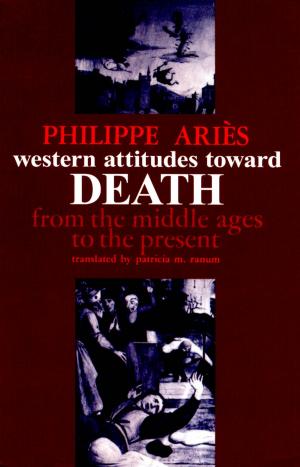Black Soundscapes White Stages
The Meaning of Francophone Sound in the Black Atlantic
Fiction & Literature, Literary Theory & Criticism, Theory, Nonfiction, Social & Cultural Studies, Social Science| Author: | Edwin C. Hill Jr. | ISBN: | 9781421410609 |
| Publisher: | Johns Hopkins University Press | Publication: | October 1, 2013 |
| Imprint: | Language: | English |
| Author: | Edwin C. Hill Jr. |
| ISBN: | 9781421410609 |
| Publisher: | Johns Hopkins University Press |
| Publication: | October 1, 2013 |
| Imprint: | |
| Language: | English |
Black Soundscapes White Stages explores the role of sound in understanding the African Diaspora on both sides of the Atlantic, from the City of Light to the islands of the French Antilles. From the writings of European travelers in the seventeenth century to short-wave radio transmissions in the early twentieth century, Edwin C. Hill Jr. uses music, folk song, film, and poetry to listen for the tragic cri nègre.
Building a conceptualization of black Atlantic sound inspired by Frantz Fanon's pioneering work on colonial speech and desire, Hill contends that sound constitutes a terrain of contestation, both violent and pleasurable, where colonial and anti-colonial ideas about race and gender are critically imagined, inscribed, explored, and resisted. In the process, this book explores the dreams and realizations of black diasporic mobility and separation as represented by some of its most powerful soundtexts and cultural practitioners, and it poses questions about their legacies for us today.
In the process, thee dreams and realities of Black Atlantic mobility and separation as represented by some of its most powerful soundtexts and cultural practitioners, such as the poetry of Léon-Gontran Damas—a founder of the Négritude movement—and Josephine Baker’s performance in the 1935 film Princesse Tam Tam. As the first in Johns Hopkins’s new series on the African Diaspora, this book offers new insight into the legacies of these exceptional artists and their global influence.
Black Soundscapes White Stages explores the role of sound in understanding the African Diaspora on both sides of the Atlantic, from the City of Light to the islands of the French Antilles. From the writings of European travelers in the seventeenth century to short-wave radio transmissions in the early twentieth century, Edwin C. Hill Jr. uses music, folk song, film, and poetry to listen for the tragic cri nègre.
Building a conceptualization of black Atlantic sound inspired by Frantz Fanon's pioneering work on colonial speech and desire, Hill contends that sound constitutes a terrain of contestation, both violent and pleasurable, where colonial and anti-colonial ideas about race and gender are critically imagined, inscribed, explored, and resisted. In the process, this book explores the dreams and realizations of black diasporic mobility and separation as represented by some of its most powerful soundtexts and cultural practitioners, and it poses questions about their legacies for us today.
In the process, thee dreams and realities of Black Atlantic mobility and separation as represented by some of its most powerful soundtexts and cultural practitioners, such as the poetry of Léon-Gontran Damas—a founder of the Négritude movement—and Josephine Baker’s performance in the 1935 film Princesse Tam Tam. As the first in Johns Hopkins’s new series on the African Diaspora, this book offers new insight into the legacies of these exceptional artists and their global influence.















